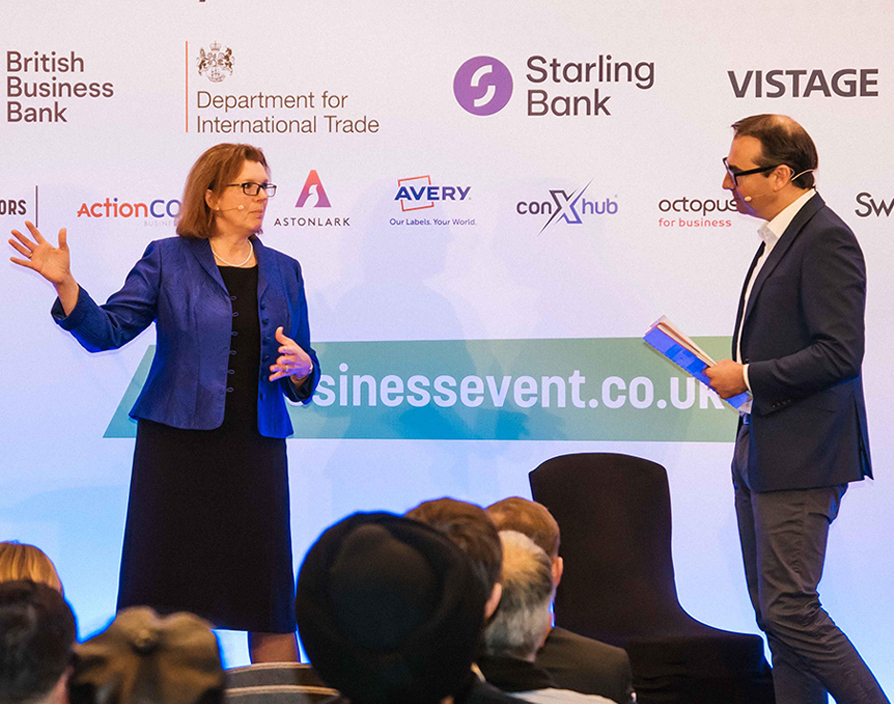What are the pros and cons of the hybrid working model? What are some of the challenges businesses are facing in the workforce?
Sherry Coutu CBE, non-executive Director of Pearson plc, London Stock Exchange plc, DCMS, Workfinder, and Raspberry Pi. The serial entrepreneur and investor spoke on the first day of Elite Business on 10 March as the keynote speaker for the Talent and Regulation session, touching on the hybrid working model and pressures that come with new ways of working. How do we make it easy for people to start companies, run them and grow them? Sherry said, addressing the audience. The hybrid workforce is one of the best tools that we have. But what pressures brought all of this about?
Sherry spoke about advancements in technology and how this has shaped the workforce as the demands for job roles transform at a rapid rate. A rise in automation has also made certain jobs obsolete. Educators and mentors should be aware of our changing world ‘ what was once a good career path a decade ago may not apply to this digital era, Sherry said.
Over the last 20 years we’ve seen the pace of technology accelerating faster and faster, Sherry said. And we’ve seen huge amounts of new jobs arise and we’ve also seen huge numbers of other jobs disappear. We’ve seen lots and lots of automation. Automation is good but it’s actually had a deleterious effect on onboarding new people and it’s been pretty stressful in the inventory of people working both in large companies and small companies. So, what can we do about that?
She added: If you don’t have much education, you’re likely to be automated. How do we feel about that as a society? Probably not very good… What used to be good to do 5 to 15 years ago is definitely not the good thing to council anybody for. And if you’re in education and you’re a teacher or professor you really shouldn’t be talking about what was good to study or what was good to navigate towards anymore.
Sherry spoke about how universities and educational institutions are still not up to par with the changing demands of the workforce. The world has completely transformed over the past 5 years, and our education systems may not be keeping up. Therefore, it is up to employers to train their employees and keep them up to date with relevant skill sets. What you study in school and university doesn’t really matter any longer, Sherry explained. It doesn’t matter where you’re looking at it from. So, it’s up to the employer to upscale people, because they’re not going to really be upscaled at the universities. Again, this is not just with the UK ‘ this happens all across the entire globe. Which from an entrepreneurial point of view, this is a good thing.
This means there are wonderful ways of supporting this. 80% of people learn more from their internships and part-time jobs they have while studying at university, and employers want those people rather than the people who got straight As and didn’t ever leave the classroom. But it’s still not that easy to do. The value of higher education is absolutely slamming down country by country everywhere.
Sherry explained how the lockdown has been detrimental to the younger generation who are either have just entered the workforce, or are set to start their careers, causing a spill over effect on businesses in the micro and macro level. It is essential for employees to develop their skillset and prepare them for uncertainty and challenges ahead in a post-pandemic world. I think the damage to kids in school has been enormous, Sherry said. And it’s been easier to see the damage to millennials who work in large companies and small companies, which has also been quite extreme and very hard to detect although you can now see it to quite a large degree. How do you build up your soft skills, STEM skills, and how do you upscale people at the rate they need to be upscaled?
There should be an emphasis on work experience and internships earlier on in people’s careers, so they develop the necessary skills required in their fields. Companies are looking for workers who have a range of skills outside the classroom, and developing this early helps young people become more employable in the workforce. 70% of young people starting their working lives don’t feel they have the appropriate skills, Sherry said. And most of them are utterly stressed that they never had a day of work experience in their lives. And why is that? It’s because who did you hire for your work experience in your company? Was it your nephew or niece? Was it somebody else? How do you feel about that? Is that right? Do we as a society accept that?
“
Share via:


















































